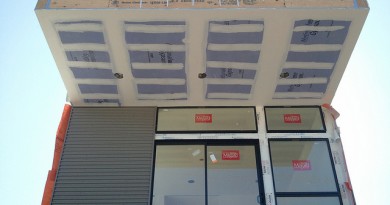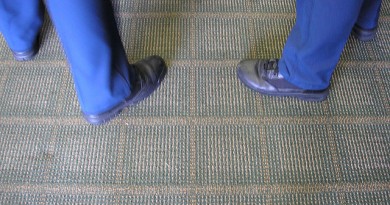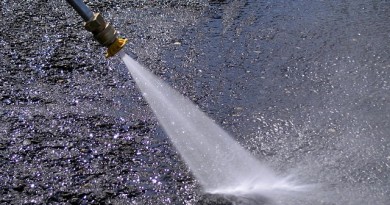How Much Does Asphalt Paving Cost?
Asphalt has been used for paving purposes since the 1870’s. Asphalt is a naturally occurring product that is also manufactured. In modern use, it is a by-product of the distillation of crude oil. As such, the price for asphalt tends to rise and fall with the price of crude oil. The main use of the substance is for asphalt concrete for road paving. To help keep costs down, asphalt is recycled so frequently that it is one of the most recycled products in the United States. For paving purposes, asphalt is less expensive than concrete long term and short term. In colder climates, the material is becoming an ever more popular choice for driveway projects because of its affordability and durability. An asphalt driveway, if installed properly, can last more than twenty years.
Estimating Asphalt Paving Cost
There are calculators online to help consumers get an accurate asphalt paving cost estimate. This is always excellent information to be armed with when negotiating with contractors to ensure that you get the best asphalt paving pricing possible.
The best calculators will estimate the price for you according to your region of the country. This is important, as the cost of asphalt paving can vary by as much as 50% or more depending on your location. Major cities and remote states like Hawaii and Alaska tend to have the highest prices. Armed with your own accurate asphalt paving cost estimate, you can then better evaluate the estimates you receive from contractors bidding for your job. The calculators include certain percentages for profit and overhead which you can manipulate to see their effect on the total price of your project.
Residential Asphalt Paving
Paving a residential driveway does wonders for a home’s curb appeal. A black asphalt driveway can last anywhere from 10 to 30 years depending on many factors such as usage, how it was installed, and the climate. Asphalt is a less expensive alternative to concrete, and thus is an attractive option for those looking to control their paved driveway cost. The cost of asphalt paving for a driveway will run anywhere from $1 to $5 a square foot, varying regionally. The price per square foot is always less for larger jobs. In contrast, concrete paving projects can cost from $3 to $10 a square foot. Prices for colored concrete can run as high as $20 a square foot. Additional factors can also add to the asphalt paving cost. Slopes and curves will complicate the project and raise the price. Also, you need to account for the cost of removing the old driveway surface.
Commercial Asphalt Paving
There are several uses for asphalt paving for businesses. The relatively low short term and long term cost of asphalt paving makes this a viable and economically intelligent choice. It is by far the most popular choice in most areas of the country for parking lot applications. Asphalt also has been used for athletic facilities such as black tops and running tracks. Schools that offer their students driver education classes may also have a fenced in asphalt area where students can learn to maneuver their car safely. Because commercial projects are usually on a much larger scale than residential ones, the asphalt paving cost per square foot is much less. Commercial jobs also necessarily include other details such as striping and handicap accessibility. So, local building codes and regulations can play a factor.
Hot Mix Asphalt Paving
Although asphalt can be handled at ambient temperatures, it is generally handled hot. Hot Mix Asphalt, as it is thus called, is applied in layers from 4 to 8 inches thick. The lower layers serve to support the surface layer. The aggregate mix for the lower layers is chosen for its strength and ability to prevent failure. The mix for the surface layers is chosen for its durability and reaction to friction. The aggregate must be angular, rather than rounded, to help prevent rutting. There are three types of hot mix asphalt – gap-graded, dense-graded, and open-graded. The grades depend on the aggregate that is used in the mix. During mixing, the aggregate and the asphalt binder are both heated to temperatures at or exceeding 300 degrees Fahrenheit. The mix is then applied and compacted while hot. Hot mix asphalt is used most commonly for high traffic applications such as highways, runways, and race tracks.
Asphalt Patching
If your asphalt driveway has become damaged, patching the damage is usually preferable to an entire resurfacing. Professional contractors can get this done quickly and cheaply for you. However, it might be even less expensive to do this project yourself. The large home improvement retail stores have the materials you need for this. Potholes can appear in driveways or parking areas as well as on roads. They are both usually weather related. Advancements in cold asphalt patching have made it easier and more affordable, making asphalt paving cost in this case almost a non-factor. Although the materials say they can be driven on almost immediately, they do harden over time so it is best to keep the patched areas blocked off until they harden thoroughly for best results. After 30 days, a liquid blacktop sealer should then be applied to the new surface.
Asphalt Paving Equipment
Paving surfaces with asphalt requires the use of specialized equipment, obviously adding to asphalt paving cost. Rollers are the large machines you typically see on the highway that look like gigantic rolling pins flattening and leveling the newly poured asphalt. Pavers look like small bulldozers. They mix the asphalt with aggregate and then apply it to the road surface. Asphalt paving systems can be rented from some construction equipment rental companies.
Asphalt Sealcoating
When pricing your project, in addition to factoring in asphalt paving cost, be sure to inquire about asphalt sealcoating. Areas of a driveway where the vehicles will be parked should be treated with a fog seal. This sealant can help prevent oil and gas leaks from destroying the top layer of binder. They also protect the underlying surface from hot sun, snow, or rain. Sealcoating is a preventative measure used to delay the more expensive repairs. In this case the surface does not last anywhere near as long as the original pavement, lasting anywhere from 1 to 3 years. It is not a method for repairing problems that lay deep below the surface.
- 715SHARES






